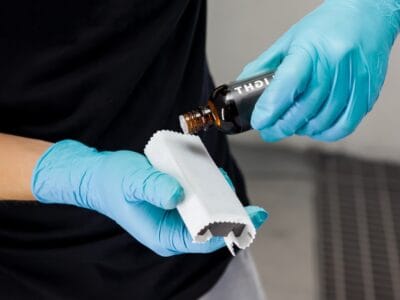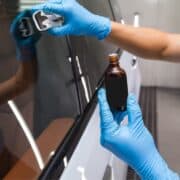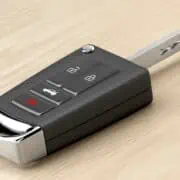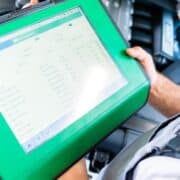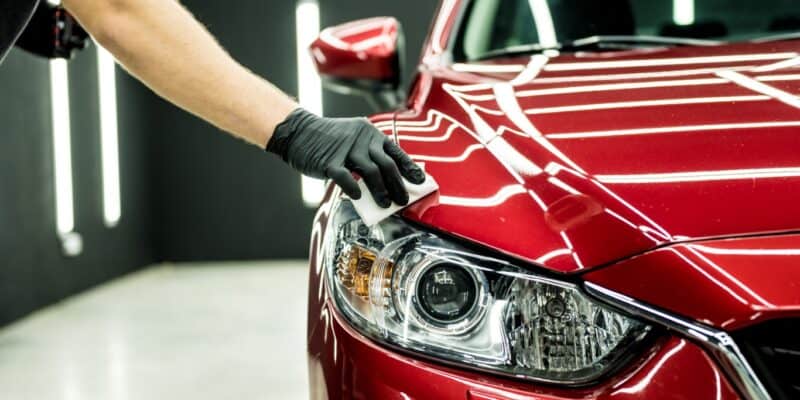
Top-of-the-line ceramic coatings have become increasingly popular in recent years as an effective way to protect a car’s paint. However, with the popularity of these coatings comes a lot of misinformation and myths. In this article, we will debunk 15 common ceramic coating myths to help you make an informed decision about protecting your car.
Myth 1: Ceramic Coating Is Extremely Expensive
Many believe ceramic coatings are unaffordable and out of reach for the average car owner. While it is true that ceramic coatings can be more expensive than traditional waxes or sealants, they are also much more durable and long-lasting, which means you’ll save money in the long run.
Also, the product is now more readily available in various quality grades, so you can even find ceramic coats that are cheaper than waxes, and they’re still really good. So, ceramic coatings are not as expensive as people think.
Quick Tip
To get the most bang for your buck, choose a reputable brand and follow our DIY ceramic coating guide to apply it yourself. Alternatively, go to a professional detailer if you’re afraid of messing things up.
Myth 2: No Need to Wash a Ceramic-Coated Car
One of the most significant selling points of ceramic coating is its ability to repel dirt and water. However, this doesn’t mean you would never wash your car again. While ceramic coating makes car cleaning easier, it doesn’t mean you can neglect it entirely.
Leaving dirt and grime to build up on your ceramic-coated car can do more harm than good. As dirt accumulates on the surface, it can act as an abrasive, scratching the surface and diminishing the coating’s protective properties.
Quick Tip
Use a pH-neutral car wash soap and a microfiber towel to avoid damaging the coating. And don’t forget to dry your car thoroughly to prevent water spots!
Myth 3: It’s Okay to Wash a Ceramic-Coated Car in the Sun
Washing your car in direct sunlight can cause water spots and streaks, which is no different for a ceramic-coated car. In fact, it’ll be even more noticeable on a coated surface. For the best results, always wash your car in a shaded area or indoors, and avoid washing it when the surface is hot to the touch.
Quick Tip
Wash your car in the early morning before the sun rises and late in the evening when the sun has already gone down.
Myth 4: Ceramic Coating Is Easy to Apply
While ceramic coatings may be easy to apply, especially if you’ve done it before, they require significant preparation and attention to detail. Using a ceramic coating is a multi-step process that involves thorough cleaning and decontamination of the paint surface, as well as careful application of the coating itself.
Quick Tip
If you are not confident in your ability to apply a ceramic coating, it is best to have it done by a professional.
Myth 5: Ceramic Coating Lasts Forever
Ceramic coatings are known for their durability, but they certainly don’t last forever. While a high-quality ceramic coating can provide several years of protection, even the best products will wear off eventually. So, you can’t just coat your car once and forget for life, even though it may be tempting.
Quick Tip
To make your ceramic coating last as long as possible, it’s essential to take good care of it. Regular washing, using the correct cleaning products, and avoiding harsh chemicals will all help to extend the lifespan of your coating.
Myth 6: You Shouldn’t Prep a New Car for Ceramic Coating
Contrary to popular belief, even a brand-new car requires preparation before applying a ceramic coating. New cars often have factory-applied protective coatings and contaminants, such as dirt and grease, that must be removed before applying a ceramic coating. Skipping this step can result in a subpar finish that looks terrible and does not last as long as it should.
Quick Tip
While you don’t need paint correction, always thoroughly wash and decontaminate your car’s paint surface before applying a ceramic coating, regardless of age.
Myth 7: Ceramic Coating Is Scratch-Proof
While ceramic coatings can provide some protection against scratches, they are not scratch-proof. Ceramic coatings can resist light scratches and abrasions from regular car washing, but they are not immune to all blemishes.
The coating is only a few microns thick, so it is essential to take good care of it to prevent damage. If anything, harsh or heavy scratches will damage the coat and the car’s paint.
Quick Tip
To avoid scratches, always use a high-quality car wash mitt, a grit guard, and the two-bucket washing method to clean your car. Additionally, avoid automatic car washes, which can cause swirl marks, scratches, and other damages to your car’s finish.
Myth 8: Ceramic Coating Is Self-Healing
Many believe ceramic coatings can self-heal, but this is not true. While ceramic coatings can protect against scratches and minor damage, they cannot heal themselves.
The term “self-healing” is often used to describe ceramic coatings because they have a hydrophobic and flexible nature that allows them to absorb some of the impacts from minor scratches and swirl marks. That said, if you find a self-healing ceramic coating, let us know! We’d love to see that in action.
Quick Tip
To prevent scratches, park your car in a garage or covered area to minimize exposure to elements that could damage the coating. It goes without saying that you also shouldn’t run into a wall or another car.
Myth 9: Ceramic Coating Protects Against Rock Chips
If ceramic coating protected against rock chips, we’d all be driving around in tanks instead of cars. Ceramic coating is an excellent way to protect your car’s paint from damage, but it’s not invincible. While it can provide some resistance to very light impacts, it won’t protect your vehicle from rock chips. The reality is that nothing can completely prevent all damage to your car’s paint.
Quick Tip
If your goal is the ultimate protection, consider using a paint protection film, which is self-healing and fairs better against rock chips.
Myth 10: Ceramic Coating Is Resistant to All Chemicals
Many think ceramic coating creates an impenetrable shield that can resist all chemicals. But this is not entirely true. Ceramic coatings can withstand a wide range of chemicals, but they are not resistant to all of them. For example, acidic or alkaline cleaners can break down the coating over time, causing it to degrade faster.
Quick Tip
Avoid harsh chemicals, acidic cleaners, or abrasive cleaners on your car. Always read the label of your cleaning products to ensure they are compatible with ceramic coatings.
Myth 11: Ceramic Coating Makes a Car Fireproof
While ceramic coating offers some protection against the heat of the sun, it won’t protect your vehicle from flames. So, if you’re planning to park your car in a burning building, you’re better off investing in a good fire extinguisher than a ceramic coating.
On a serious note, while ceramic coatings are known for resisting high temperatures, they are not designed to provide fire protection. If your car is exposed to extreme heat, such as in a fire, the ceramic coating may even crack or peel, leaving your vehicle vulnerable to further damage.
Quick Tip
To protect your car from fire, park safely and avoid parking in areas with high fire risks.
Myth 12: Ceramic Coating Hides Paint Defects
Ceramic coatings can enhance the appearance of your car’s paint. However, if the surface is chipped or has blemishes such as scratches, swirl marks, or paint chips, the coat won’t cover it in any way.
Quick Tip
Before applying a ceramic coating, prepare the car’s paint by removing all contaminants and correcting scratches and swirl marks.
Myth 13: Ceramic Coating Prevents Water Spots
Ceramic coatings can help reduce water spots but cannot prevent them entirely. Water spots occur due to minerals present in the water, which can etch the paint and the coating.
H3: Quick Tip
Always dry your car thoroughly after washing using a high-quality microfiber towel to avoid water spots.
Myth 14: Ceramic Coating Peels off Easily
One of the biggest misconceptions about ceramic coatings is that they peel off easily. However, the truth is that ceramic coatings are designed to be extremely durable and long-lasting. In fact, the only way to remove a ceramic coating is by sanding it off your car.
Ceramic coatings form a bond with the car’s surface, making them incredibly hard to remove. While it is true that improper application can cause the coating to fail prematurely, a well-applied ceramic coating should last for years.
Quick Tip
Always follow the manufacturer’s instructions when applying ceramic coatings to ensure proper preparation and application.
Myth 15: Ceramic Coatings Are All the Same
There is a common misconception that all ceramic coatings are the same, but this couldn’t be further from the truth. There are different grades of ceramic coatings available on the market, and each grade offers different levels of protection and durability.
For instance, professional-grade ceramic coatings are typically more durable and long-lasting than DIY ones. Professional-grade coatings are also commonly applied by certified installers. In addition, these coatings often come with multi-year warranties, which is a testament to their durability.
On the other hand, DIY-grade ceramic coatings are more affordable and easier to apply, making them a popular choice for car enthusiasts who want to protect their cars without breaking the bank. While these coatings may not be as durable as professional-grade coatings, they still offer excellent protection against light scratches, UV damage, and chemical stains.
Quick Tip
Before purchasing a ceramic coating, research and read reviews to ensure you select a quality product that meets your needs and expectations.
Filter Out the False Information
While ceramic coatings offer many benefits and can help protect your car’s exterior, it’s important to understand the realities and dispel common myths about them. By understanding the facts about ceramic coatings and choosing a high-quality product, you can enjoy the benefits of this technology while avoiding unrealistic expectations and disappointment.



